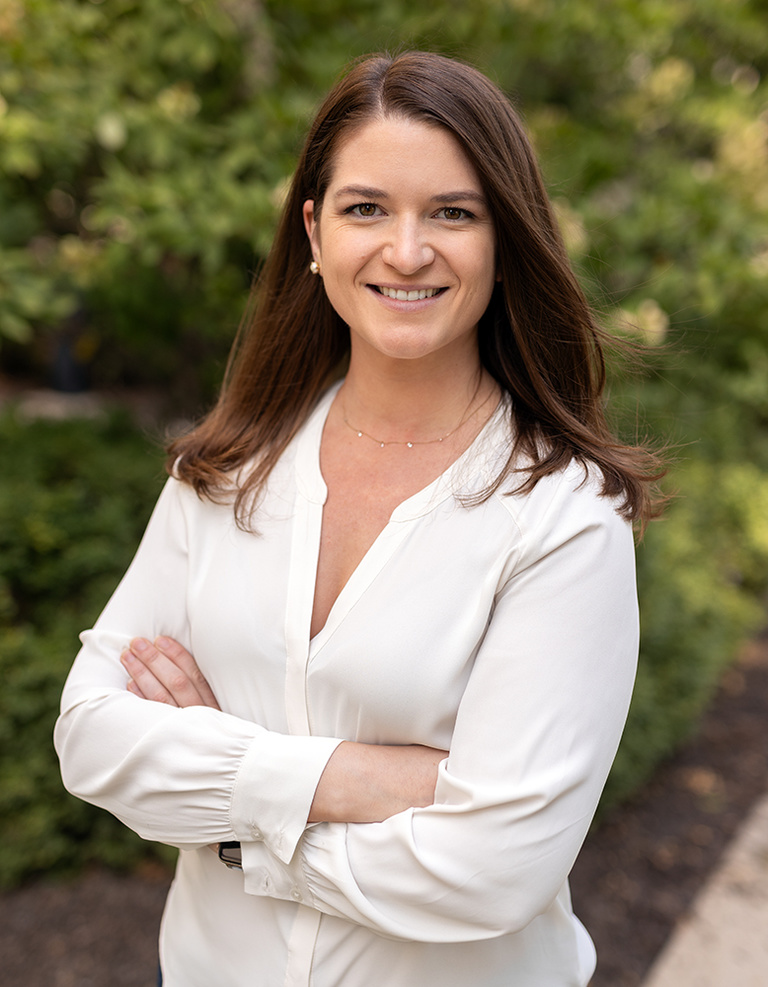Doctoral candidate Jamie Kaminski began her graduate studies in clinical psychology at the University of Iowa in 2020. Her research has focused on neurological events, such as stroke or traumatic brain injuries, and has explored how the characteristics of a patient’s lifestyle, injury, or care received after injury impact their recovery.
At the UI, Kaminski has access to the University of Iowa Hospitals & Clinic’s Iowa Neurological Patient Registry for her research. The registry was established in 1978 to assist researchers who study brain injury - a condition that affects millions of Americans and over 2,500 Iowans each year. Kaminski’s mentor, Daniel Tranel, PhD, was part of the team that created the registry.

Kaminski’s plan for her dissertation centers on the clock drawing test – a neuropsychological test used primarily as a screener for dementia, where a patient is asked to draw a clock displaying a specific time from memory. Kaminski’s research includes all aspects of the injury and the test, including where the lesion is in the brain and the type of error made on the clock drawing test. Specifically, Kaminski looks at the test’s use as an outcome predictor. She hopes that more directive and better-informed clinical diagnoses will lead to differences in treatment.
“My main goal is to have the clock drawing test be a better informant for clinicians," Kaminski says. “I’m hoping that by using the university’s vast registry of patients with brain injuries and dementia, we can identify clock drawing error patterns that can indicate diagnoses or predict cognitive outcomes down the line."
Discovery Guides Decisions
Like many other students, Kaminski had long harbored a passion for research in her field, but throughout her life and the five years between her undergraduate and graduate studies, she has used her curiosity to specify her specific research interests. Her journey began back in high school with support from her father, and her passion for neuropsychology continued to grow throughout college.
Kaminski graduated from Stonehill College – a small liberal arts college just outside of Boston – in 2015 with a degree in neuroscience. Throughout her time as an undergraduate and post-graduation, she worked at the VA Hospital with patients who had psychological disorders, such as Schizophrenia. At Spaulding Rehabilitation Hospital, she worked with patients with traumatic brain injuries, and on the administrative side of research through the Dana Farber Cancer Institute in Boston.
Kaminski knew from her previous experiences that she enjoyed neuropsychological testing and working directly with patients, so she applied to graduate school. Her time at the rehabilitation hospital inspired her to continue working with patients who had suffered a traumatic brain injury. Through her partner’s encouragement, Kaminski broadened her initial geographic search area to include the University of Iowa.
Exploration Continues in Graduate School
Kaminski’s curiosity and openness to trying out potential passions have extended into her graduate studies. She’s worked on multiple research projects in her time here to find what drives her, and she’s still looking at new areas for her pre-graduation internship and post-doctoral program.
“There is no wrong decision when trying things out. That’s what graduate school is meant for, and it's the same with my five-year gap. It’s all about figuring out if this is this the path for me,’” she says.
She recommends gaining exposure to different areas and seeing “what drives you, wakes you up excited to work” and what “keeps getting pushed to the bottom of your to-do list” as a way to identify your passion among your interests.
To those currently in graduate school, Kaminski offers this advice: “It’s a marathon, not a sprint. Find ways to measure your progress dependent on tangible markers because the goalposts keep moving.”
Now in the fourth year of a five-year program, she reminds herself that when the goalposts are moving, it can be key to take it step by step. She says that finding ways to quantify progress can make a rewarding way to look back on what she has accomplished, especially when gratification might be delayed in graduate school.